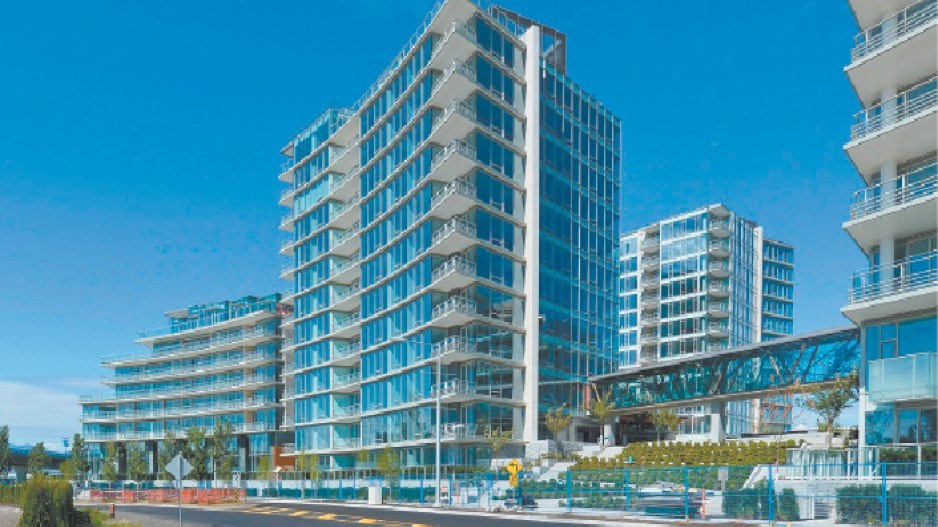Record year
It’s been at least seven years in the making, but the portfolio of five Westin hotels – including the Westin Bayshore Resort and Marina in Vancouver – that has been on the market at various times since late 2006 has finally changed hands.
Starwood Capital partnered with investors from the Middle East to buy the portfolio in a $765 million deal in which Starwood bought the minority share of former partner PSP Investments.
PSP manages pension monies for Canada’s public service, the Canadian Forces and reserves and the Royal Canadian Mounted Police.
The property was on and off the market thanks in part to the economic turmoil over the past seven years. It was taken off the market late last year following interest that included buzz of two or three local developers vying to buy the property for conversion to condos.
“The only reason they didn’t get it was because they weren’t buying the whole chain,” Bob Levine of Avison Young told commercial real estate association NAIOP in October 2012.
The latest deal was a private transaction between Starwood and its Middle Eastern partners and PSP.
The portfolio – including hotels in Calgary, Edmonton, Toronto and Ottawa as well as Vancouver – last changed hands in 2005. The Bayshore was valued at $120 million in 2005, the second-biggest real estate transaction in Vancouver that year. This time round, the hotel was valued at $150.8 million.
The latest deal promises to give Canada as a whole its biggest year ever for hotel trades.
“We’re going to hit north of $2 billion in hotel trades, which is a record, and part of that is this $765 million transaction,” said Mark Sparrow, director of CBRE Ltd.’s Western Canada hotel division.
Sparrow said the Bayshore was a unique property in the portfolio and traded at a 5% cap rate – low both for the market and relative to the rest of the portfolio, which averaged 7.7%.
Get wet
Waterfront real estate is enjoying good times, if the latest snatches of news from various neighbourhoods around Metro Vancouver are any indication.
Last Tuesday, First Capital Realty Inc. announced its acquisition of the commercial space at the Village on False Creek – totalling approximately 64,000 square feet – for $46.1 million.
The deal leaves just 82 of the 737 residential units in the development to sell; of these, 56 are being marketed now, and the rest are being rented prior to release.
Sales are also progressing riverside at River Green, which Aspac Developments Ltd. is developing adjacent to Richmond’s speedskating oval.
The first phase of 458 units is currently receiving occupants, with just 92 units left to sell.
Three units sold at the end of November, bearing out the optimism in the recent residential market report from Colliers International that Richmond and other markets “heavily influenced by new immigrants” will continue to see steady sales.
River Green has attracted primarily Chinese buyers, both new immigrants and downsizers, with owner-occupiers dominating. The property is developed to a Coal Harbour standard; prices range from $600 to $1,000 per square foot.
The outlook is positive enough that John Ryan, Aspac’s vice-president of development, said a second phase, with about 200 units,will break ground in 2014.
Regardless of market, overall property values in Vancouver ticked up in November. The Real Estate Board of Greater Vancouver reported a 0.1% rise in the benchmark price in Richmond versus October and a 0.4% rise overall to $603,000.
Wet blanket
While stronger sales activity and steady or even improving pricing are welcome news, RBC Economics remains dour on the market in its latest survey of housing affordability.
“Buyers’ return to the market since spring rebalanced the equation with sellers, which contributed to sending prices on an upward course following a year of decline,” the latest report opined. “The flip side is that higher prices took a further toll on an already poor affordability situation.”
Affordability is effectively two-tiered, being absent (according to traditional measures) in the major centres while within historical norms beyond.
Buying a two-storey home in Vancouver requires 87.4% of household income today, while a condo requires 41.9% – well above the 32% threshold by which observers typically measure affordability.
The same housing types for B.C. as a whole require 74.1% and 34.7%, respectively. •




